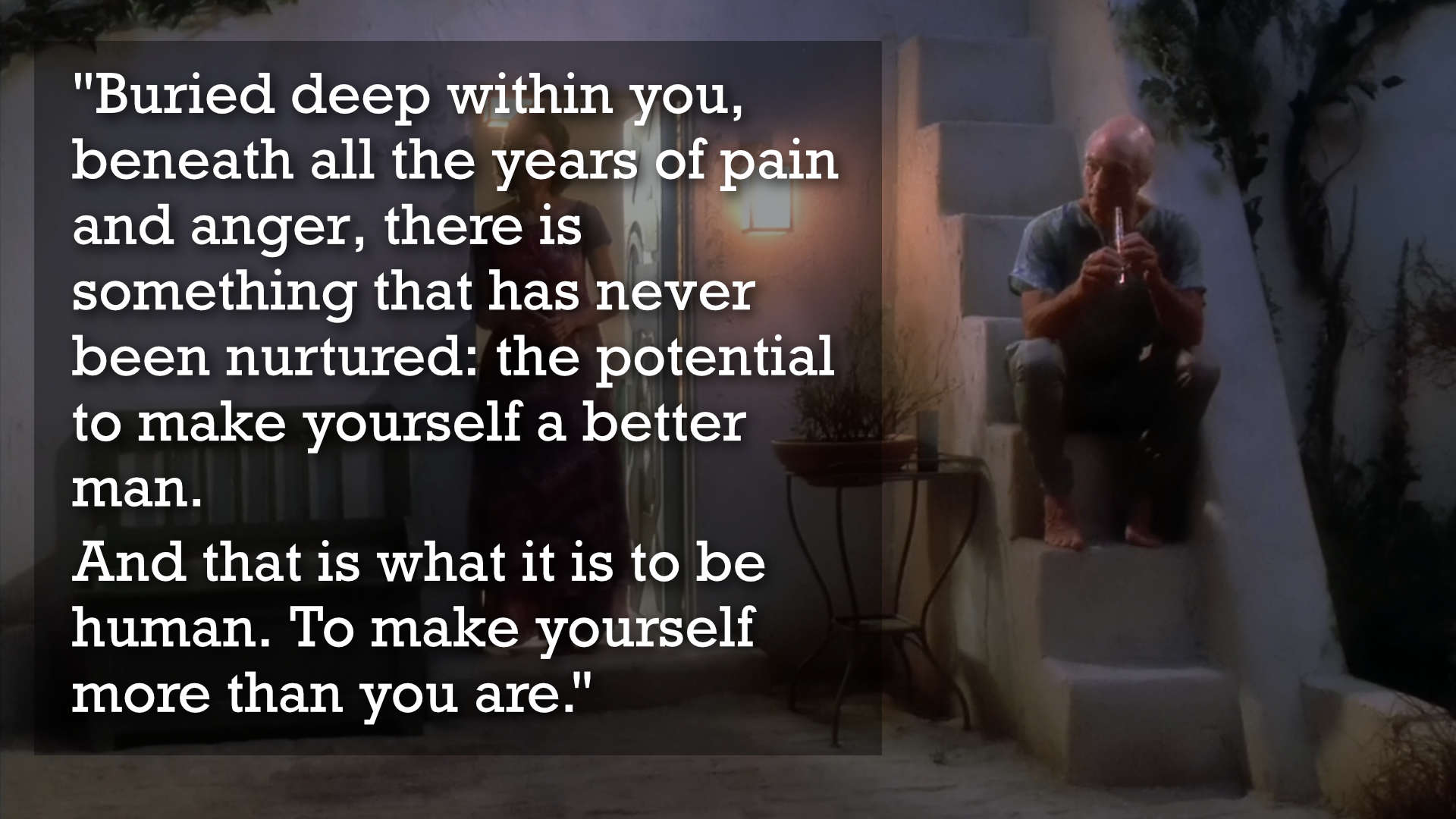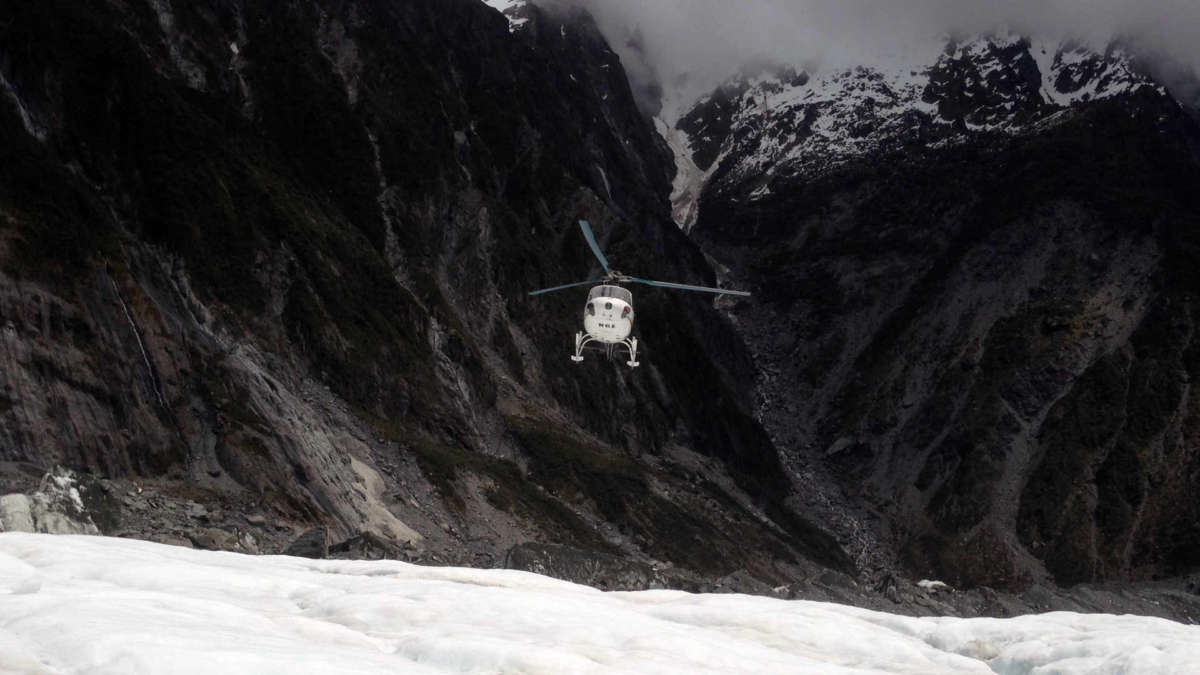Have you ever thought back on the decision points in your life when you weren’t sure of the right way? Was it worth taking the risk? I’m not talking about ethics—I mean the risks you decided to take when you didn’t “know” the right choice in the path ahead.
Did these decisions create the life you have today?
Was taking a risk worth it each time?
Taking Risk
Last week I wrote to you about how to enjoy the small things in life. It’s a post that focuses on maximizing the value of the little parts of your life that are already there and appreciating what you have.
At its essence, this Stoic mindset is about finding peace with the life you have—as you have it. Noel summed it brilliantly in the comments:
Happiness isn’t wanting everything, it’s wanting nothing.
Noel @ Happily Disengaged
While I genuinely believe this is the sort of Stoic virtue or mindset we should aspire to, it’s simply not human nature to want for nothing.
Without want and the drive to fulfill that want, we wouldn’t progress as a human society in quite the way we have.
Want to be better, to stretch our boundaries, and to create what’s in our mind’s eye is the sort of healthy desire we need to achieve greatness. Of course, challenging ourselves in this way involves risk.
This week, I wanted to write to you about a different point of view on taking risk in life.
Life is about taking risks
I’d wager that if you thought back on your life, much of the path you have followed was dependent on a handful of key decisions starting in your adolescence.
- When you were able to pick your own classes, did you pick challenging ones that you were interested in or the ones you knew you could get a good grade in?
- Was the weekend time to party with friends or did you catch up on reading for school?
- When you liked someone, did you show your interest or wait?
- Did you go on to higher education or proceed into the workforce?
- Were you a follower of a leader or demand new responsibility?
All of those key decisions throughout life involved risk because of the unknown that lay ahead of you.
If you picked a class that was hard but sounded interesting, what if it turned out to involve way more math than you expected and you were terrible at math. Choosing the less interesting class you knew you could ace would certainly look better on college transcripts.
But similarly, what if the math in that Chemistry class planted the seed for you to fall in love with numbers? Perhaps the teacher became more of a mentor as they groomed your numerical skill and wrote you a letter of recommendation for your application to MIT.

The tapestry of life’s risks
All these moments of decision and their potential outcomes weave the tapestry that is your life. Or at least, that’s a takeaway I had when Jenni and I watched one of the more thought-provoking episodes of TV we’ve seen recently.
What was it?
An episode of Star Trek: The Next Generation.
This is the late 80s/early 90s version starring Patrick Stewart as Jean-Luc Picard, captain of an interstellar spaceship. It’s filled with moral quandaries and ethical dilemmas as the crew explore planets and resolve the problems that come from multi-planetary cultural quagmires.
In particular, the episode we watched (“Tapestry”, Season 6 Episode 15), dealt with Picard’s life decisions and where it lead him to today.
*Spoilers ahead!*
Star Trek’s “Tapestry”
Picard finds himself dead on a doctor’s table, trapped in something akin to the afterlife. He’s greeted by an all-powerful nemesis, Q, who explains his artificial heart failed during an energy overload.
Q tells Picard that he would have survived if not for the artificial heart. Q offers him an opportunity to go back in time and change the decisions that lead up to the event that caused him to lose his organic heart as a young man.
As the audience, we see Picard in his younger years for the first time. As the older ship’s captain, Picard is an exemplary Stoic: rational, even-keeled, and exuding temperance.

But now we see he was a brash, risk-taking young man as he came up in the academy.
A brawl with alien Nausicaans to defend his best friend’s honor ended with a stab through Picard’s chest and the need for his artificial heart.
The risks of a younger person’s life
Now in the shoes of his younger self, with some time to “set things right”, Picard explores the day leading up to his wound.
He attempts to set right a date at a bar that clearly suggested “temperance” was not part of his younger years.
He tries to create a more meaningful relationship with a long-time friend which he now (with his wisdom of his elder, bachelor, years) sees as a missed opportunity for love.
In a billiards game leading up to the confrontation at the center of it all, he tries to defuse the situation as one party claims the other is cheating. Rather than rushing to fight, he pulls the sides apart and insists on diplomacy.
Picard seeks to not take risks throughout each of these encounters. He acts with the wisdom of his older self, concerned for all parties involved, seeking to find the optimum overall outcome from a predictable set of possibilities.
As the moment of the brawl comes close, Picard ultimately defuses the confrontation. He avoids the stab wound and is returned to present time, just as Q promised.
But what else has his visit to his past done to his current life?
Picard returns to his starship to find he’s no longer the captain. Rather, he’s an astrophysics research officer.
He leads a safe, intellectual position. No doubt he’s admired within his circle of control, but it’s clearly a narrow one.
Apparently he’s retained his knowledge of his previous life and laments the life that he’s created for himself.
He tries to convince the ship’s leadership he can do more.
They retort:
- You’ve had lofty goals throughout your career, but you’ve never been willing to do what’s necessary to attain them
- If you want to get ahead, you have to take chances
- Stand out in the crowd, get noticed
They suggest he’s a very good officer, they don’t want to lose him. But he’s not suitable for a command position.
Picard demands Q return his life to what it was.
Instead, he sees more of the simple life that’s been set out ahead of him.
He calls out to Q, wondering if this is what he wants to see:
“Does it amuse you to think of me living out the rest of my life as a dreary man in a tedious job?”
Why you should take risks in life
Finally Q comes forth, wondering why Picard laments a second chance at life.
Picard explains that the life set out ahead of him is not one he can endure. This is not the man he is—bereft of passion and imagination.
Q responds with a beautiful set of lines:
Au contraire, he’s the person you wanted to be. One who was less arrogant, and undisciplined as a youth. One who was less like me. The Jean-Luc Picard you wanted to be, the one who did not fight the Nausicaan, had quite a different career from the one you remember. That Picard never had a brush with death, never came face to face with his own mortality, never realized how fragile life is or how important each moment must be. So his life never came into focus. He drifted for much of his career, with no plan or agenda, going from one assignment to the next, never seizing the opportunities that presented themselves. He never lead the away team on Milika Three to save the ambassador or take charge of the Stargazer’s Bridge when its Captain was killed.
And no one ever offered him a command.
He learned to play it safe.
And he never, ever got noticed by anyone.
Take the risk or lose the chance
Through Picard’s tale, we get to see why risk is important to take in life sometimes.
Without pivotal moments of risk and occasional short-term failures, we don’t earn the battle scars we need to become the passionate person that’s buried deep within each of us.
The opportunity to take a risk can pass by, it’s a chance we might lose if we don’t take it once it’s presented.
Reasons why we take risks
I’ve made countless mistakes in my life and momentous decisions that changed the course of my future. I’m sure you have, too.
We’ve shared some of it, at least as it relates to finances on here before:
- How I switched from a ~$900/month townhouse in a smaller city to a corner apartment near DC which cost me an extra ~$52K over a few years through massive lifestyle creep
- When Jenni made the leap to give up her pharmacy management position by changing from fulltime to part-time work
- How I blew half my net worth by buying individual stocks vs index funds right before the Great Recession
- That time I turned down a $175K salary at 28 years old and instead decided to start a consultancy, move to another city, and move in with Jenni
- A whole bunch of reasons you should seriously be cautious turning a hobby into a business
- And countless pivots, snags, and detours in our story of how to become a millionaire in 10 years
The reason we’ve taken many of these risks is to further larger goals we have. I’d like to think they were calculated risks at the time, but that might be viewing it with rose-colored glasses looking back.
Plenty of these risks we took turned into failures, or at least serious learning lessons.
As you might imagine, there’s many more than what we’ve shared.
“What if?”
It’s incredibly tempting to think back and wonder: what If I didn’t blow all that money on that apartment or lost so much in the stock market through my investment decisions?
Could I have invested it earlier and maybe we’d reached FI earlier?
What if I didn’t leave the early stages of my career for a stint in the Peace Corps that cost me significant time to build up my skills and a bit of my early wealth?
When we were still six figures in debt, what if we paid it down instead of spending weeks in Europe for the first time together on a rail pass with a couple of backpacks?
And then there’s forward-looking “what ifs”:
What if I took that job with a huge salary at 28 years old?
And what if I didn’t use my FU money to say “no” before they escorted me out of the building at 25?
Perhaps we’d have begun our transition to retire early before this pandemic hit and not lost a year (and growing) of time to slow travel and take in the world.
What if Jenni didn’t switch to part-time work, could she have stayed on and taken over the company eventually?
Perhaps she could have started her own pharmacy down the road.
Risk and success
Right when we were starting TicTocLife back in May, someone reached out to me about buying one of the businesses I started. It was the second time this particular party expressed interest.
While I thought it did have some value, it’d withered in recent years as I let relationships weaken and consultants I worked with to provide client services go without a full plate of work.
As a buddy of mine suggested, I always treated it as a “lifestyle business”. I didn’t take growing it truly beyond myself seriously. There were opportunities in the past to win contracts that would pay for multiple full-time people’s salaries, but I didn’t make significant effort to win them.
I just didn’t really see what the added stress, effort, and demand for my own time would provide me that I didn’t already have.
The discussion with the interested buyer in May progressed to an NDA and a potential offer, the caveat was that I’d need to stay on and transition the business and build a team.
But again I could only think the same way: why? What was the end game for all this extra effort? The story of the Mexican fisherman played in my head.
Our negotiation ended.
The simple life may be all I think I need, but perhaps I don’t know what I’m missing out on.
Maybe I could have created a cash cow of a business and significantly increased our reader’s donor fund.
It’s impossible to know where on the spectrum between Picard’s astrophysics officer life and captain of the ship we’ve each fallen.
Have we wound up on the safer side of the spectrum within the confines of possibilities in our life?
Or have we maximized risk to reach a satisfying, challenging life that we want?
The Cost of Playing it Safe
The takeaway? There’s good risk and bad risk. The problem is in knowing which one is which, especially without the benefit of hindsight.
Good risk we can sometimes overcome and mitigate. This is risk we perceive from fear. We fear failure, rejection, and the unknown. We can overcome these fears through building resilience, having a backup plan, and research.
Bad risk is created from true uncertainty. Calculated risk-taking is important. If you can’t perceive the chances of success or failure it becomes a leap of faith. No matter the outcome of this risk, you’ll be left unsure whether it was the right decision.
Whether you identify the right risk or not, the best takeaway you can have from each attempt is an opportunity to learn more about yourself. What sort of fear created the risk? How did you handle it? What can you do better next time?
The true cost of playing it safe and not taking risk is to never challenge yourself to become what’s buried deep inside you: a better person.
What do you think about taking risk in life as you age?
Do you think wisdom precludes our ability to take as many risks as we once did?


9 replies on “The Scary Cost of NOT Taking Risk in Life”
Your post spoke to me. I was a shy teen with low self esteem even though I was extremely intelligent. I took what felt like a huge risk to be a lead actor in a play in high school that we took on the road across the country. I recognized that I could be humiliated if I froze on stage, but I also saw big rewards if I could do it. I was actually a pretty good actor, as it turned out, and from then on I became a braver person, not afraid of risks when great rewards were possible. It changed my entire self image, my life trajectory and I became a leader in business, eventually running a billion dollar corporation. And if I had chickened out on the play? I think I would have led a very safe and very boring life. Instead, my life has been amazing, so much fun, so exceeding my expectations!
Glad you enjoyed it!
I think the stage-nut that Patrick Stewart is would enjoy such a story and relation to one of his characters (Picard).
Pushing that comfort zone, taking risks where you can without too much to lose seems to be core to building character when we’re younger.
I hated risks when I was younger. I was pretty conservative and usually play it safe. Not sure what changed that. Now, I don’t mind some risks. I guess I learn that life goes on. You can fail and it’s no big deal. Just try again. As long as the consequence isn’t catastrophic, it’s okay to take some risks.
I think part of it is just having a larger safety net as you grow older and have some success.
– You’ve got family that can care for you
– You’re more trusting of friends with longer, deeper relationships
– Knowing who you are lends you more confidence
– You build up FU money to enable you to take financial risks
A lot of that stuff is missing or is very weak when you’re younger. I feel similarly, in a lot of areas, I’m willing to take on much larger risks these days.
I have always shied away from risk, even as a child. It’s something I am forcing myself to push past as I get older. I guess I am working in reverse. But knowing that nothing amazing happens without some risk and living a life of intention has me moving in that direction.
I think that’s the healthy approach!
As I said to Joe above, it kind of makes sense that we are willing to take on more risk (at least in absolute terms) as we age. We’ve got a larger safety net to fall back on—both in financial and personal terms.
And, to your point, we learn who we are and are able to make decisions based on our own values—a life of intention.
Hey Chris, great post. I feel honored to make into the article content, right on. I’m liking the Star Trek material. For me, the older I get the less risk I can stomach–except with my investments, for some reason I’m taking more risks than usual, like being all in on stocks. I think it has more to do with bond yields sucking though. Fantastic example with Picard returning to the ship and not being the captain because he’d mitigated conflict in his youth.
Life has a funny way of working out, even a loss/conflict can have great outcomes, just as you allude to with Picard. I remember getting laid off..well, fired actually, back in 2015 after arguing with a boss at work. I thought my career was over, it was such a low, but this led me down an entirely different path I would have never taken if I hadn’t of lost my temper. Looking back after some years, getting fired was the best thing that ever happened to my career. Now I’m making better money and found my true passion in my industry. Great article ! Happy Thanksgiving.
Noel, I appreciate you reading my writing and clearly making an effort to grapple with it and have a discussion! So, you’re the one that deserves thanks there!
Glad you enjoyed some Picard.
It is funny how we handle risk very differently as we age—and in different parts of our lives, differently.
It would be neat to be able to see what branches life may have taken, thinking back on those pivotal moments like yours in 2015. Coincidentally, I just shared a post about a pivotal moment like that for me back in 2010 (about FU money). I do wonder what could have happened…
Our Thanksgiving was fantastic—and remote 😉 I hope yours was excellent as well. Thank you!
For me, more or less risk depends on the category. In general, I take less risk across the board as I get older. I’m an ancient 38 now, so this might change…
However, that’s primarily in the physical and financial realms. (Not as many crazy risks rock climbing, and I’ll occasionally walk a potentially fatal rock waterfall rather than ride on my mountain bike!) Financially, it’s more about capital preservation rather than maximizing returns.
Creatively, I take more risks now than I did when I was focused on taking risks in business after leaving my safe engineering job. Not all of them pan out, but it’s fantastic to invest in different projects (podcasting, video production, blogging, newsletters, music) that I didn’t do when I was younger.
I also assert myself more with people and say no more often to things I don’t want to do – better to be respected than liked, especially if I’m respecting my own values. That felt risky when I was in building mode, but now I’m more comfortable with it.
Lastly, I find myself thinking more deeply about the risks involved with things now and weighing the potential outcomes more than I did before my pre-frontal cortex was fully developed! But I certainly plan on upending some apple carts in my life a few more times before I’m done.